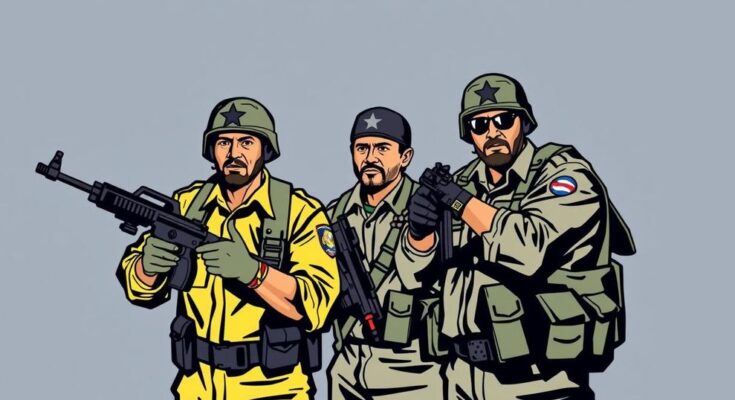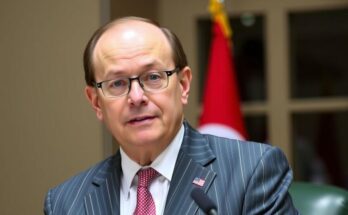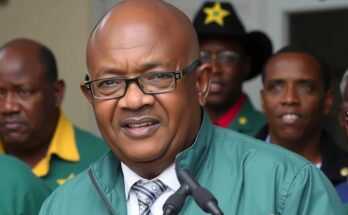Nicaragua’s President Daniel Ortega has offered military support to Venezuelan President Nicolas Maduro following contested election results that prompted widespread protests and allegations of rigging. As tensions rise, Ortega criticized other Latin American leaders for failing to endorse Maduro’s victory, highlighting the complexities of regional political alliances.
Nicaragua’s President Daniel Ortega has declared his willingness to deploy “Sandinista fighters” to Venezuela to support President Nicolas Maduro in the event of an “armed counterrevolution” following a disputed presidential election in July. This election has led to protests in Venezuela, prompting accusations of election rigging and significant civil unrest, wherein at least 24 individuals have been reported killed due to political violence. Thousands have protested against Maduro’s victory, raising concerns among international observers and opposition groups. During a summit with various Latin American leaders, President Ortega expressed his support for Maduro, asserting that in the event of conflict, his regime would stand by Maduro’s government. Notably, Ortega did not clarify whether the support would come from the Nicaraguan military, police, or pro-government militias previously accused of human rights violations. Moreover, Ortega criticized fellow leftist leaders who have not endorsed Maduro’s electoral victory, specifically targeting Brazil’s Luiz Inácio Lula da Silva and Colombia’s Gustavo Petro. In turn, Petro publicly countered Ortega’s comments, asserting that he prioritizes human rights over political allegiance. The legitimacy of Maduro’s election results remains contentious, with both local and international entities challenging the government’s claims of a 50% victory, which electoral observers have deemed questionable. The Venezuelan opposition has produced detailed tallies that allegedly indicate their candidate defeated Maduro, further complicating the political landscape. The credibility of the electoral process continues to be under scrutiny as Venezuela faces increasing political and social instability.
The recent electoral situation in Venezuela highlights significant tensions within Latin American politics, particularly regarding authoritarian regimes. Daniel Ortega, ruling Nicaragua for multiple terms, has voiced unwavering support for fellow leader Nicolas Maduro, whose controversial reelection has been criticized both domestically and internationally. The growing unrest within Venezuela has resulted from allegations of an unfair electoral process, prompting Ortega’s offer of military assistance, which underscores the potential for regional destabilization driven by inter-governmental alliances amongst leftist leaders. The historical context of the Sandinista movement brings additional complexity, as Ortega’s FSLN party has a long-standing legacy stemming from the Nicaraguan Revolution, symbolizing a commitment to socialist principles that resonate with Maduro’s governance. As accusations of election fraud proliferate, the solidarity between Ortega and Maduro emphasizes the potential for conflict arising from existing political allegiances. This situation is further complicated by external pressures from the United States and European nations advocating for transparency in Venezuela’s electoral processes, reflecting broader concerns regarding democracy and human rights in the region.
In summary, Nicaragua’s President Ortega has extended his military support to Maduro’s government in response to the fallout from Venezuela’s controversial elections. The political climate in both countries poses significant implications for human rights and governance, as opposition voices grow louder amidst allegations of election misconduct. The solidarity between Ortega and Maduro not only highlights a regional alliance but also raises questions regarding the future of democracy in Latin America amid rising authoritarianism. Moreover, the international scrutiny over Venezuela’s electoral integrity may influence future political developments, stressing the importance of accountability and trust in democratic processes within the region.
Original Source: edition.cnn.com




